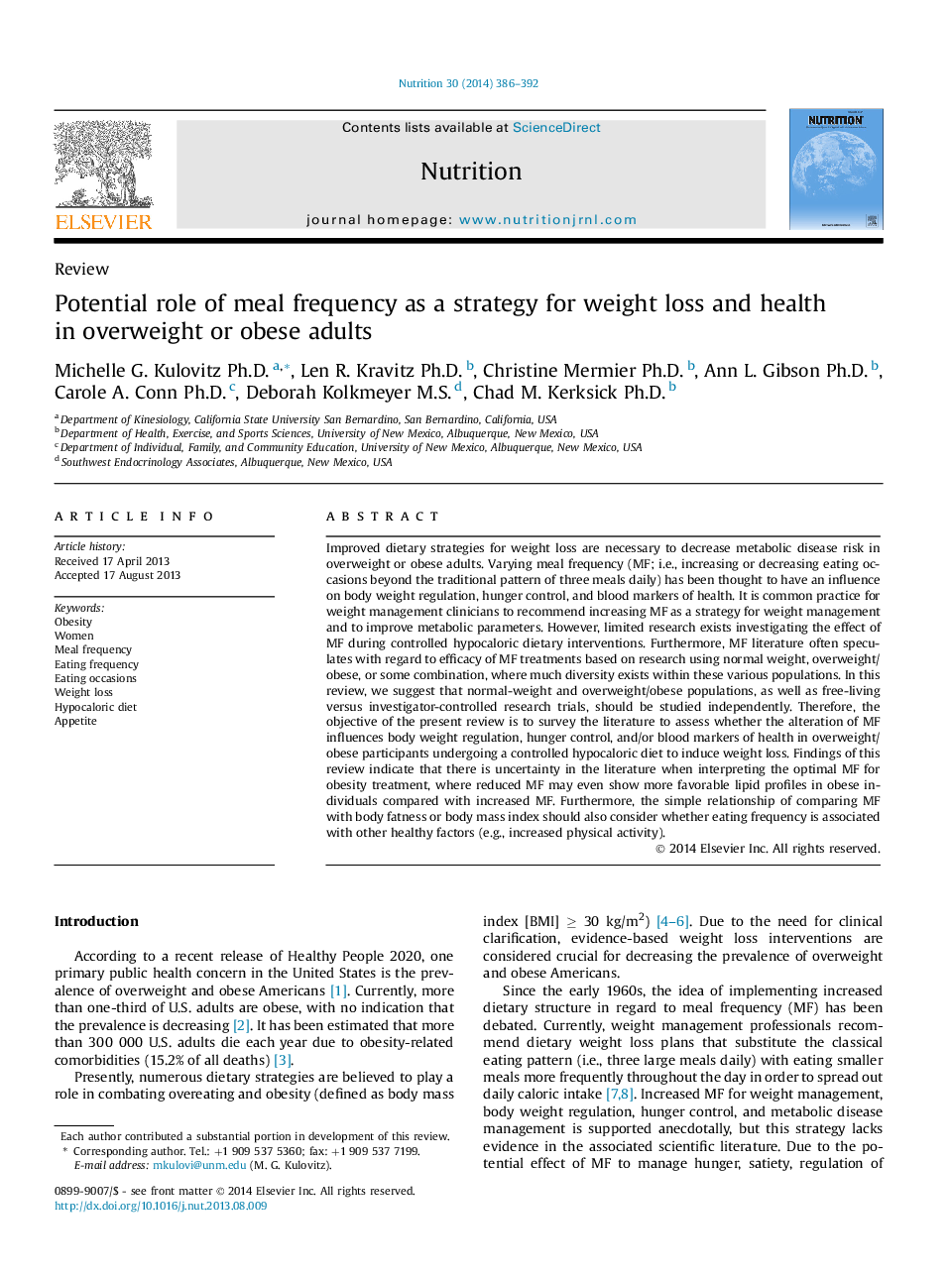| کد مقاله | کد نشریه | سال انتشار | مقاله انگلیسی | نسخه تمام متن |
|---|---|---|---|---|
| 3276361 | 1208556 | 2014 | 7 صفحه PDF | دانلود رایگان |
Improved dietary strategies for weight loss are necessary to decrease metabolic disease risk in overweight or obese adults. Varying meal frequency (MF; i.e., increasing or decreasing eating occasions beyond the traditional pattern of three meals daily) has been thought to have an influence on body weight regulation, hunger control, and blood markers of health. It is common practice for weight management clinicians to recommend increasing MF as a strategy for weight management and to improve metabolic parameters. However, limited research exists investigating the effect of MF during controlled hypocaloric dietary interventions. Furthermore, MF literature often speculates with regard to efficacy of MF treatments based on research using normal weight, overweight/obese, or some combination, where much diversity exists within these various populations. In this review, we suggest that normal-weight and overweight/obese populations, as well as free-living versus investigator-controlled research trials, should be studied independently. Therefore, the objective of the present review is to survey the literature to assess whether the alteration of MF influences body weight regulation, hunger control, and/or blood markers of health in overweight/obese participants undergoing a controlled hypocaloric diet to induce weight loss. Findings of this review indicate that there is uncertainty in the literature when interpreting the optimal MF for obesity treatment, where reduced MF may even show more favorable lipid profiles in obese individuals compared with increased MF. Furthermore, the simple relationship of comparing MF with body fatness or body mass index should also consider whether eating frequency is associated with other healthy factors (e.g., increased physical activity).
Journal: Nutrition - Volume 30, Issue 4, April 2014, Pages 386–392
